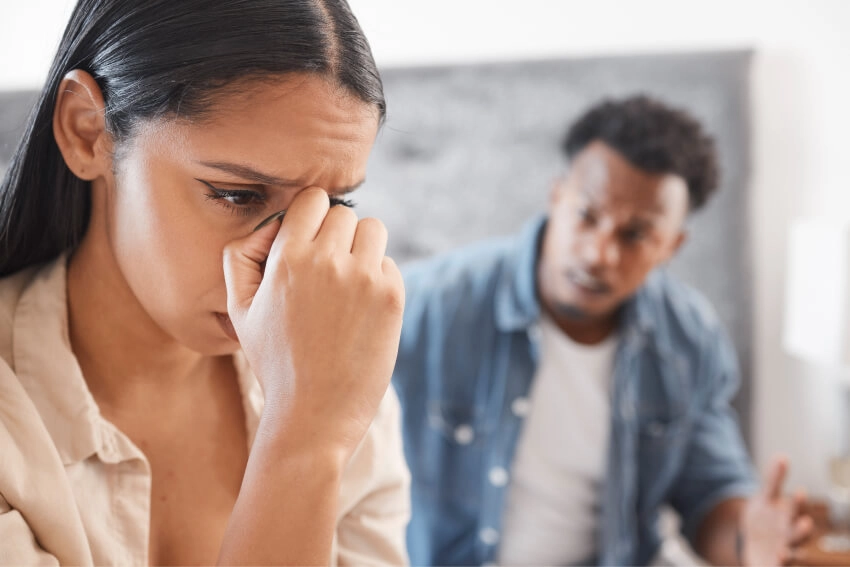Leaving a toxic relationship can be an incredibly challenging and courageous decision. It takes strength and self-awareness to recognize when a relationship has become toxic and to take the necessary steps to break free from it. This article aims to provide guidance, support, and valuable insights for individuals who find themselves in toxic relationships and are contemplating leaving.
Contents
What Are The Roots Of Toxic Relationships?
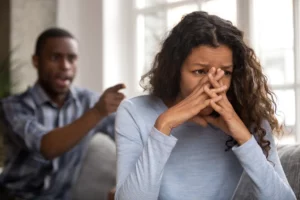 Toxic relationships can have various underlying causes, and pinpointing a single root cause can be challenging. However, there are several factors that commonly contribute to the development and perpetuation of toxic relationships.
Toxic relationships can have various underlying causes, and pinpointing a single root cause can be challenging. However, there are several factors that commonly contribute to the development and perpetuation of toxic relationships.
Here we have mentioned a few vital points to explain it a bit deeper:
- Poor communication skills: Ineffective communication is frequently a key contributor to toxic relationships. Misunderstandings, unresolved disagreements, and a loss of confidence between partners can result from ineffective communication.
- Low self-esteem and insecurity: People who struggle with deep-seated fears or low self-esteem may be more likely to engage in or accept harmful behaviors. Sometimes, in order to make up for their personal inadequacies, one or both partners may look to the partnership for approval, control, or power.
- Codependency: A maladaptive pattern known as codependency occurs when one or both spouses strongly rely on the other for their emotional health, sense of value, and sense of identity. This dependence may lead to an unhealthy power dynamic that encourages harmful practices like manipulation and control.
- External stressors: Relationships may suffer as a result of external stressors including financial hardships, work-related pressures, or big life transitions. When people experience excessive external stress, they may act out, emotionally withdraw, or engage in other harmful behaviors.
It’s important to note that while these factors can contribute to toxic relationships, they do not excuse or justify toxic behaviors. Recognizing these underlying causes can be a starting point for individuals to seek self-reflection, personal growth, and professional support to break free from toxic patterns and cultivate healthier relationships.
Recognizing The Signs Of A Toxic Relationship
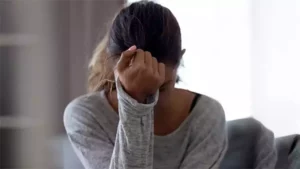 The signs of a toxic relationship are crucial for your emotional well-being and overall happiness to make your further life flawless.
The signs of a toxic relationship are crucial for your emotional well-being and overall happiness to make your further life flawless.
Here are some common signs that may indicate you are in a toxic relationship:
- Lack of respect: Mutual respect is a fundamental aspect of any healthy relationship. In a toxic relationship, disrespect may manifest as constant criticism, belittling, or dismissing your feelings and opinions.
- Control and manipulation: Toxic partners often try to control your behavior, decisions, or activities. They may use manipulation tactics, such as guilt-tripping, gaslighting, or isolating you from friends and family.
- Constant negativity: Toxic relationships are characterized by a consistent atmosphere of negativity. Your partner may frequently criticize, complain, or create unnecessary conflicts, leading to a draining and toxic environment.
- Emotional and verbal abuse: Verbal abuse involves the use of harsh language, insults, and demeaning comments. Emotional abuse may include threats, intimidation, or constant humiliation, leaving you feeling emotionally drained and belittled.
- Lack of support: Healthy relationships involve support, encouragement, and understanding from both partners. In a toxic relationship, your partner may show little interest in your goals, dismiss your achievements, or undermine your self-esteem.
- Unhealthy jealousy and possessiveness: While a certain degree of jealousy is natural, excessive jealousy and possessiveness can be signs of a toxic relationship. Your partner may constantly monitor your activities, question your loyalty, or become overly controlling.
If you recognize several of these signs in your relationship, it may be an indication that you are in a toxic situation. It’s important to prioritize your well-being and consider seeking support from trusted friends, family, or professionals to help you navigate the process of addressing and potentially leaving a toxic relationship.
When To End A Toxic Relationship?
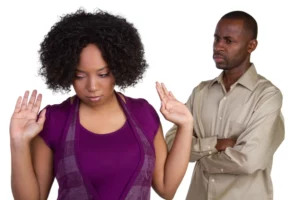 Knowing when to end a toxic relationship can be challenging, but there are certain indicators that suggest it may be time to move on.
Knowing when to end a toxic relationship can be challenging, but there are certain indicators that suggest it may be time to move on.
Here are some signs that it may be appropriate to end a toxic relationship:
- Loss of personal identity and happiness: In a toxic relationship, it’s common for individuals to lose their sense of self, compromise their values, or constantly feel unhappy and drained. If the relationship consistently hinders your personal growth, happiness, and overall fulfillment, it may be time to let go.
- Isolation from support systems: Toxic partners often isolate their significant others from friends, family, and other support systems. If you find yourself cut off from loved ones or constantly defending your partner’s behavior to those who care about you, it may be a sign that the relationship is unhealthy.
- Incompatibility and different values: If you and your partner have fundamental differences in values, life goals, or long-term visions, it can create constant conflict and dissatisfaction. In such cases, it may be challenging to find a healthy and fulfilling compromise.
- Intuition and inner voice: Trust your intuition and listen to your inner voice. If deep down, you feel that the relationship is not serving your best interests or is causing you more harm than good, it may be a clear sign that it’s time to end it.
Remember, ending a toxic relationship is a personal decision and should be made with careful consideration for your well-being. Seek support from trusted friends, family, or professionals to help you navigate this process and ensure your safety.
What Is The Best Way To End A Toxic Relationship?
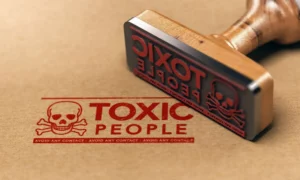 Ending a toxic relationship can be challenging, but there are several steps you can take to navigate the process in the best way possible.
Ending a toxic relationship can be challenging, but there are several steps you can take to navigate the process in the best way possible.
Here you can analyze a few vital points that will guide you deeper:
- Prioritize your safety: If you’re in an abusive or dangerous relationship, your safety should be the primary concern. Develop a safety plan, find a safe place to stay, and consider involving local authorities or support organizations to ensure your well-being.
- Plan ahead: Take the time to plan your exit strategy. Secure important documents, gather any necessary financial information, and make arrangements for housing and support systems before ending the relationship.
- Be clear and assertive: Clearly communicate your decision to end the relationship. Use “I” statements to express your feelings and avoid blaming or attacking your partner. Be firm in your decision and avoid leaving room for negotiation or manipulation.
- Limit contact and cut ties if necessary: In some cases, it may be necessary to limit or cut off contact with your toxic partner. Especially if they continue to exhibit harmful behaviors or refuse to respect your boundaries. Consider blocking their phone number, removing them from social media, and avoiding places where you may run into them.
- Take care of yourself: Focus on self-care and prioritize your well-being during this transition. Engage in activities that bring you joy, and practice self-compassion. While consider seeking therapy or counseling to help process your emotions and heal from the toxic relationship.
- Stay strong and resilient: Ending a toxic relationship may be met with resistance, manipulation, or attempts to draw you back in. Stay strong and remind yourself of your worth. Surround yourself with positivity and support as you navigate this challenging period.
How Long Does It Take To Recover?
 Recovery from a toxic relationship is a deeply personal and individual process, and the time it takes to heal can vary greatly from person to person. There is no fixed timeline or predetermined duration for recovering from a toxic relationship.
Recovery from a toxic relationship is a deeply personal and individual process, and the time it takes to heal can vary greatly from person to person. There is no fixed timeline or predetermined duration for recovering from a toxic relationship.
Factors that can influence the length of the recovery process include:
- Duration of the toxic relationship: The longer the individual was in the toxic relationship. The more time it may take to recover from its effects.
- Level of trauma experienced: Toxic relationships can cause significant emotional trauma. The severity of the trauma and its impact on the individual’s mental and emotional state can affect the length of the recovery process.
- Individual resilience: Each person has a unique level of emotional resilience and coping mechanisms. Some individuals may naturally possess greater resilience and adaptability, enabling them to recover more quickly.
It is essential to be patient and compassionate with oneself during the recovery process. Healing takes time, and everyone’s journey is different. If the impact of the toxic relationship is particularly severe or if the individual is struggling to cope. Then seeking professional help from a therapist or counselor can provide valuable support and guidance.
Conclusion
Leaving a toxic relationship is a courageous choice that prioritizes self-worth and well-being. It signifies reclaiming personal happiness and creating a healthier future. While the recovery process may vary, it is important to remember that healing is possible. By recognizing the signs, seeking support, and establishing boundaries, individuals can break free from toxicity. Embracing self-care, surrounding oneself with positivity, and fostering personal growth. Because these are key steps toward building a life filled with love, respect, and fulfillment. Choose yourself and embark on a journey toward a brighter, toxic-free future.
Relationships are complex, and it’s natural for issues to arise along the way. If you have any queries regarding Relationship Counseling experienced therapists at CoupleMantra can help: Book a trial couple therapy session.
